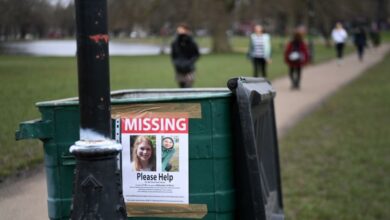Philippines’ Marcos to divert from Duterte’s bloody war on drugs approach

Manila, Sep 14 (EFE).- The Philippines’ president has said that he will not continue with the same bloody war on drugs approach launched by his predecessor, Rodrigo Duterte, whom he will protect from accusations of crimes against humanity by the International Criminal Court (ICC).
“The war on drugs will continue but we have to do it in a different way,” Ferdinand Marcos Jr said during an exclusive interview with TV host Toni Gonzaga at the Malacañang Palace and aired on All TV on Tuesday night, official news agency PNA reported.
The president refrained from giving further details on this matter, which he did not touch upon in earlier speeches, but pointed out that he and his team would try to solve the problem through “prevention” and the treatment of addicts.
“Right now, we are trying to formulate how, what is the latest and what’s the best way for rehabilitation,” he added.
The leader also acknowledged that his administration was trying to find the best way to address the problem in the police department after six bloody years under Duterte’s mandate.
According to the calculations of various NGOs, the war on drugs launched by Duterte claimed the lives of some 27,000 people in violent anti-drug police raids. The Philippines police put that figure at 6,200.
Last year, the International Criminal Court (ICC) announced an investigation into potential crimes against humanity during that campaign, although Duterte, who withdrew the Philippines from the body in 2019, did not allow investigators to enter the country.
Marcos reiterated his decision for the Philippines not to rejoin the organization.
“I don’t see any reason why we should. The ICC is supposed to take action when the country no longer has a functioning judiciary… organs of state, police etc. That condition does not exist in the Philippines. So, I do not see what role ICC is going to play here in the Philippines,” he said.
“The alleged crimes were committed in the Philippines. They were all committed by Filipinos. Why will we need a foreigner to tell us how to deal with it?” he added.
“I do not see why it is a violation of human rights. It is a question of jurisdiction and sovereignty,” the president replied when asked about human rights advocates’ criticism of his decision not to rejoin the ICC.
Although the Philippines is no longer part of the ICC, the body has jurisdiction to investigate alleged crimes against humanity as long as the country under investigation was part of the court when the events occurred, as is the case in this matter.
Marcos, son of late dictator Ferdinand Marcos, won the presidential elections in May by an overwhelming majority.
Sara Duterte, daughter of the former president, is the vice president. EFE
fil-esj/pd/tw





